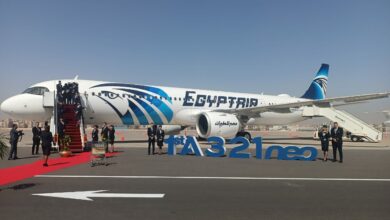Ten years ago only a handful of channels catered to Arabs and Muslims in the U.S and Europe. These would usually broadcast one program a day, often a rambling talk show about community activities in the area.
Stories might include the building of a new interfaith prayer center, a feature about the new halal butchers in the neighborhood, and a couple of profiles of prominent figures in the community.
The overall look was lackluster and these channels became notorious for their lack of creativity. Would this kind of programming even have a future?
The answer is surprising. A look around today reveals a thriving industry that is miles away from its banal origins.
Cable and satellite providers in the US and Europe now offer a variety of sleek modern channels for Arab and Muslim communities. They offer a full range of programs including movies, music, current affairs, and religious shows.
All of the Arab world’s satellite giants have launched separate channels geared to Arabic speaking communities outside of the region.
On the top of this list is ARTE America, a special branch of the Saudi owned mega broadcaster ARTE that is determined to reach the growing number of Arabs in America. The intention is to give immigrants a little taste of home.
The channel’s mission statement reads: “ARTE’s goal is to link the Arab communities to their homeland with programming in their own languages. Programming highlights include entertainment, drama, sports and movies, as well as coverage of national events, festivals and religious celebrations.”
ARTE is not alone. Capitalizing on their momentum, private Lebanese channels Future and LBC have also launched their own America channels, while news leaders AlJazeera and Al Arabiya air slightly altered versions of their usual programming.
But Arabic and Muslim channels in the US are not limited to Middle Eastern franchises. Dandana TV and TAC are both Arabic language channels that were created on American soil, with little support from home.
Dandana is America’s first Arabic music video channel offering viewers across the US the newest Arab pop videos. Over the years Dandana has attracted large audiences, even amongst non-Arab populations in Latin America.
TAC, on the other hand, was created specifically to serve the greater New York/New Jersey area. Originally based in the world trade center towers, TAC lost much of its staff and equipment on 11 September 2001. Shortly thereafter TAC opened a new office, revamped their look and started broadcasting again. Today they boast more than a million viewers and that number is on the rise.
But the success stories of TAC and Dandana stand in stark contrast to the story of Bridges TV, a New York channel that was launched to counteract the negative stereotypes about Muslims in the US.
Created in 2003, Bridges TV was run by Muzzammil Hassan and his wife, Aasiya Hassan, who faithfully dedicated themselves to the task of educating Americans about the true nature of Islam.
The idea was to present western audiences with an enlightened, liberal Islam. Bridges would help westerners shed their beliefs this was an archaic, violent religion, and prove once and for all that it could embrace the twenty-first century.
Last year everything was going according to schedule and the channel began to receive praise for its efforts.
But then Muzzamil Hassan was suddenly arrested. He was charged with beheading his wife in a fit of spousal rage. When asked by the media why he had committed murder, he accused his wife of adultery and cited his right to take her life as Muslim husband.
Needless to say the American media had a field day with the story and the accident did little to improve the image of Muslims in the US.
On the other hand, a very different religious channel in Cyprus called Al Hayat has actually set out to intentionally defame Islam.
Run by Egyptian Christians in exile, and seen by millions of viewers, the channel has shocked the world with its aggressive rhetoric and open attacks on the Prophet Mohamed.
Al Hayat’s flagship program features Father Zakaria, who appears as a daily guest on its morning show.
The bearded priest, clad in his black Coptic robes, always begins the program the same way. He reminds the audience that as a Christian he loves everyone, including Muslims. He means no offense by what he is about to do. That is when the diplomacy ends.
For the next hour Father Zakaria invariably goes on a thinly veiled tirade against Islam, making sarcastic comments that mock the Prophet and questioning Islam’s religious tenets.
His approach has made him many enemies, over the years, including Al-Azhar and the Egyptian Coptic church. But Father Zakaria also claims to have converted thousands of Muslims to Christianity through his preaching on the program. He proclaims that he has more than 5 million dedicated viewers.
These are impressive figures for a channel that was created to address a tiny Coptic community in Cyprus. And a strong reminder that such channels have broken out of their traditional role, entering an entirely new stage in their evolution.




